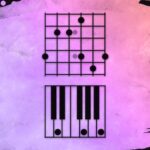Build Your Skills
Learn music theory Train your ears Track your tempoRead Now
Get the Newsletter
Categories
- | BeatMirror (10)
- | HearEQ (11)
- | Waay (23)
- | WaayFinder (1)
- Audio (16)
- For musicians (34)
- Guitar (2)
- Music theory (15)
- News (43)
- Startup stories (2)
- Tutorial (4)
Keep in Touch
About Ten Kettles
We love music, we love learning, and we love building brand new things. We are Ten Kettles.
Read more >-
February 14, 2016
What is music theory anyways?
Some musicians hear the words “music theory” and think “that has nothing to do with my kind of music—that’s for classical or something.” Maybe you feel that whipping out a blackboard that reads “What is music theory?” kills the genuine and heart-felt part of making music. And to be honest, in some cases you’re totally right. The best music often does come from the heart. Good music theory just helps you express what you feel—and if something gets in the way of that, it can be a problem.
What is music theory?
Music theory can mean different things to different people. Does it just mean knowing what a key is, what a scale is? Or does it mean being a master of harmony and voice leading? Maybe it means taking a bunch of courses and acing some exams? Who defines this anyways? Do we go to Wikipedia, a high-school or university music theory course, or do we skip the academic definitions and go to our favourite musicians—what does music theory mean to them?
So, what’s the answer? I think looking at music theory that’s used for songwriting, applied music theory, is a good way to go. I think about the basic building blocks of songs and songwriting:
- The names of notes and types of chords
- What chords fit well together
- How to build a great-sounding vocal harmony
- How to put a solo or melody over a chord progression
And those core concepts don’t just help you write music, they also let you communicate with other musicians clearly. And whether you’re bringing a song idea to your band or writing music with other people, being able to clearly explain and discuss your musical ideas is a huge asset.
Music theory can go wrong
Music theory can go wrong when it starts feeling like you, the songwriter, aren’t in charge anymore. When you write a song, you’re the one whose opinion matters and if some rule tells you something should sound bad but it sounds good to you, then the rule’s not worth much. Theory doesn’t—and shouldn’t—tell you what sound goods and what doesn’t. Your ears do that. Music theory just points you in the right direction, toward some really helpful patterns you can use to turn your musical vision into a song.
Building your toolbox
There’s one more thing I love about music theory: it can help you define what you like. You can learn more about the writing in your favourite songs—and then allow those ideas to inspire your own writing. Sometimes a cool key change between verse and chorus just grabs you, and if you can look at the chords and see what happened then you’ve learned something useful. And we think useful music theory is what it’s all about.
Ready to learn some music theory? Check out our other music theory articles and Waay, our iPhone/iPad app for learning applied music theory, with its bite-sized videos, interactive exercises and progress-tracking tools.



Comments